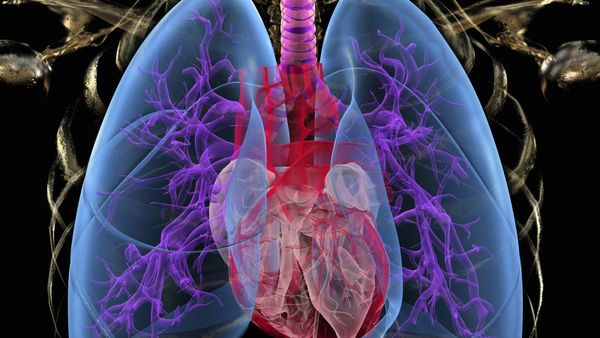Hiccups don't cause nausea or paragangliomas. Rather, hiccups are often accompanied by nausea, since both hiccups and nausea are sometimes caused by the same thing. Hiccups generally occur if you have overeaten, eaten spicy foods, drunk a lot of alcohol, or if you are very excited or stressed. Most of us have experienced a tasty dinner where we've eaten so much that we start to feel sick and, at the same time, the hiccups start. Or maybe you've had a big night out and a few too many beers, and you find yourself hiccupping shortly before you need to run to the toilet to hurl. The reason hiccups and nausea go together is that both occur as a result of a distended stomach. Abdominal distension leads to a feeling of fullness, as well as possible abdominal pain and nausea. Your abdomen may also become large enough that it touches one of the nerves that innervate the diaphragm. This nerve irritation may trigger the hiccups.
A paraganglioma is a rare type of tumor that is found throughout the head, neck, and upper part of the chest. Paraganglioma are slow-growing tumors and are generally benign. However, as they grow, they may push on nerves or other important parts of the body and interrupt their regular function. Paraganglioma sometimes grow along the vagus nerve. The vagus nerve is one of the nerves that innervate the diaphragm, and irritation of the vagus nerve can cause the hiccups. So in fact, it is not that hiccups cause paraganglioma, but paraganglioma may cause hiccups. Although hiccups are not usually caused by something harmful, persistent hiccups, lasting more than 48 hours may indicate that something more serious is going on, like a paraganglioma. This is why it is important to see a doctor if you have persistent hiccups.
Advertisement

